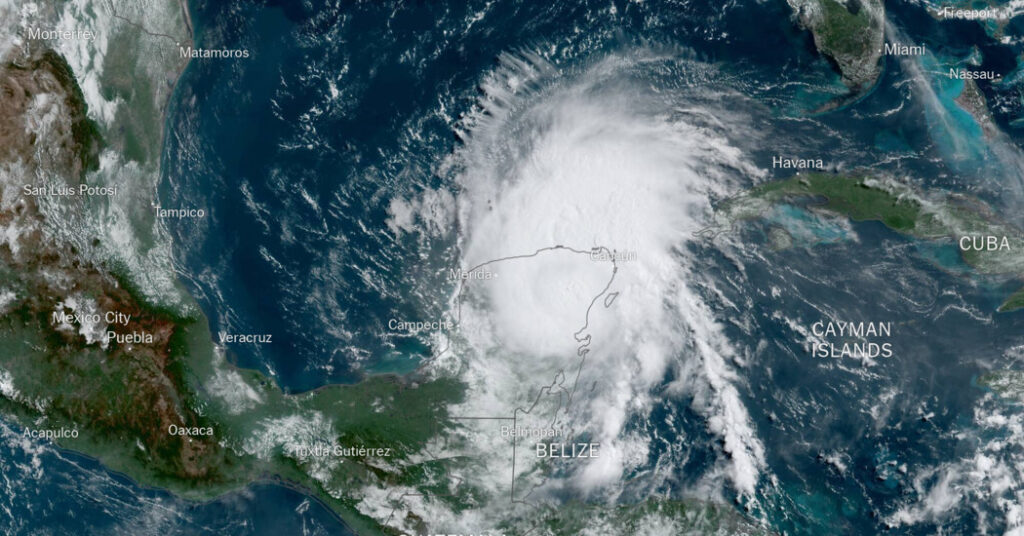Hurricane Beryl Brings Dangerous Winds and Heavy Rain to the Yucatán Peninsula

Hurricane Beryl, the first hurricane of the 2023 Atlantic hurricane season, made landfall on the Yucatán Peninsula early this morning, bringing dangerous winds and heavy rain to the region. The Category 2 storm formed just days ago and rapidly intensified as it moved across the warm waters of the Caribbean Sea.
Residents and tourists in the area were urged to take precautions and prepare for the storm’s arrival. Hurricane Beryl brought sustained winds of up to 100 mph and heavy rainfall, causing power outages, flooding, and damage to buildings and infrastructure.
The Yucatán Peninsula, which is home to popular tourist destinations such as Cancun and Cozumel, is no stranger to tropical storms and hurricanes. However, the rapid intensification of Hurricane Beryl caught many by surprise, leaving them scrambling to secure their homes and seek shelter from the storm.
Local officials issued evacuation orders for low-lying areas and urged residents to stay indoors and avoid unnecessary travel. The storm’s strong winds and heavy rain posed a serious threat to anyone caught outside during the storm.
In addition to the immediate impacts of the storm, Hurricane Beryl also raised concerns about the potential for long-term damage to the region’s economy and infrastructure. The Yucatán Peninsula relies heavily on tourism, and the destruction caused by the storm could have a significant impact on the local economy.
As Hurricane Beryl continues to move across the Yucatán Peninsula and into the Gulf of Mexico, residents and officials are bracing for further impacts. The storm is expected to weaken as it moves inland, but heavy rainfall and flooding remain a major concern.
The arrival of Hurricane Beryl serves as a stark reminder of the power and unpredictability of nature. As climate change continues to fuel more intense and frequent storms, it is more important than ever for communities to be prepared and resilient in the face of extreme weather events.